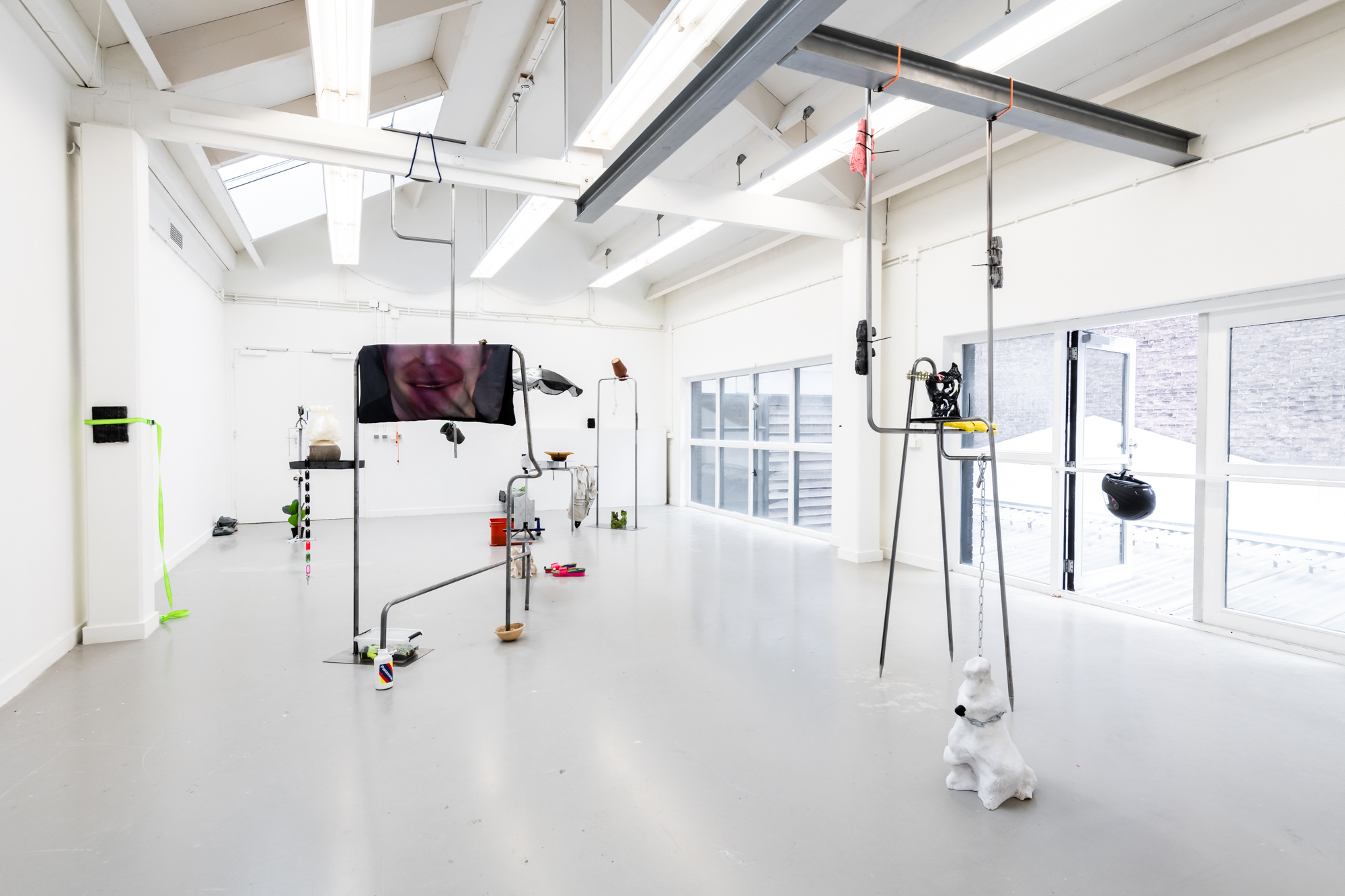

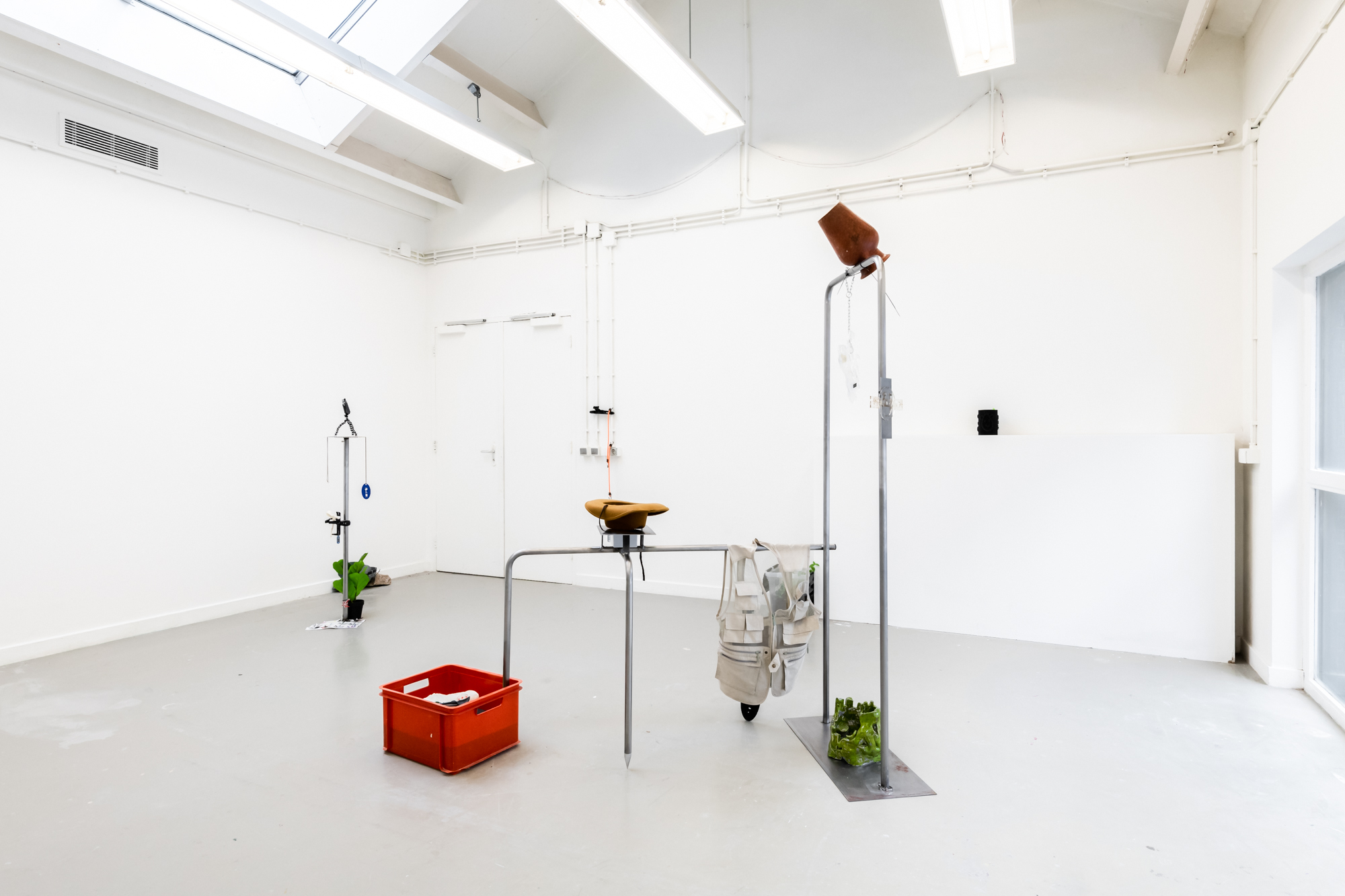



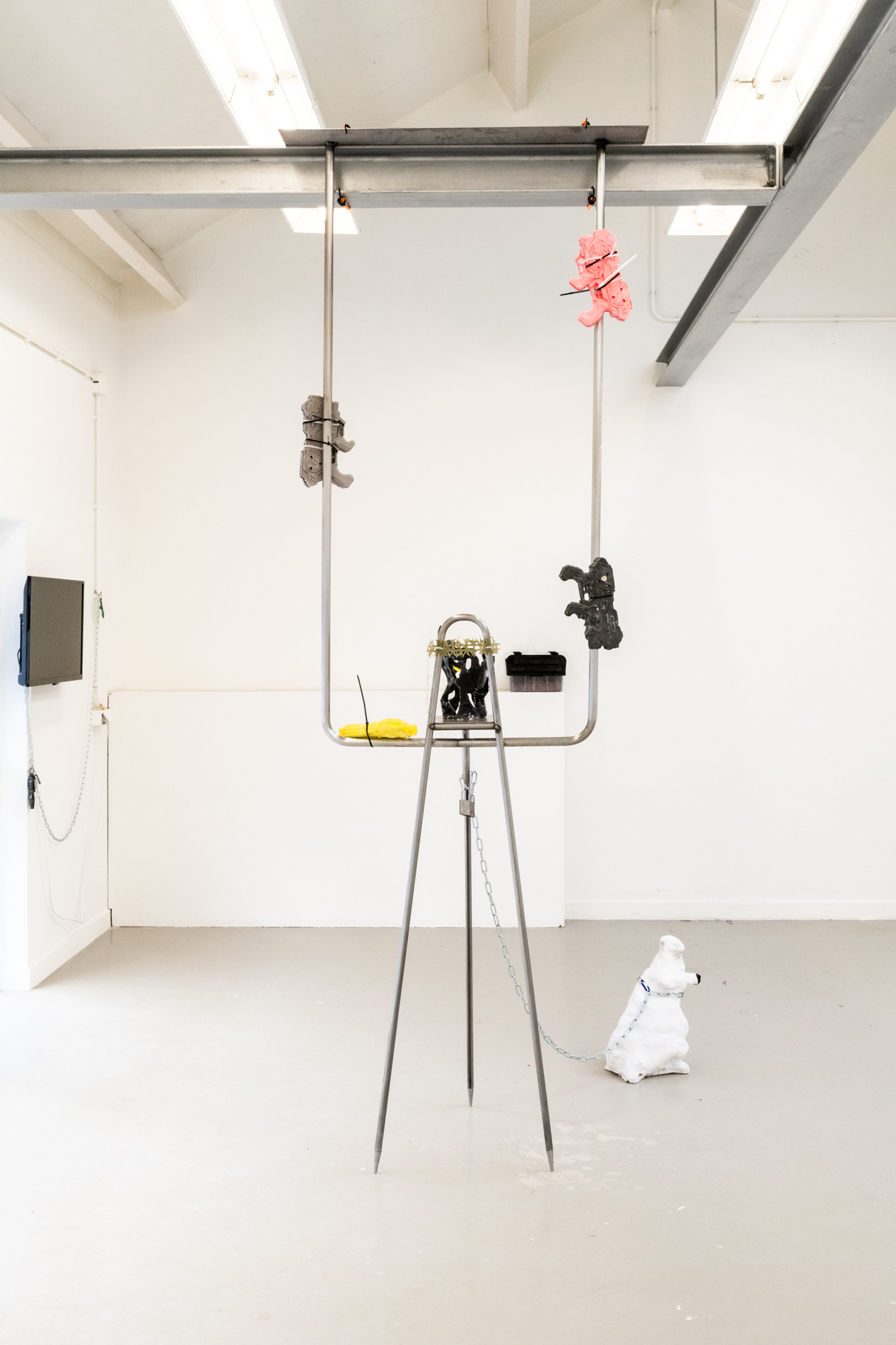
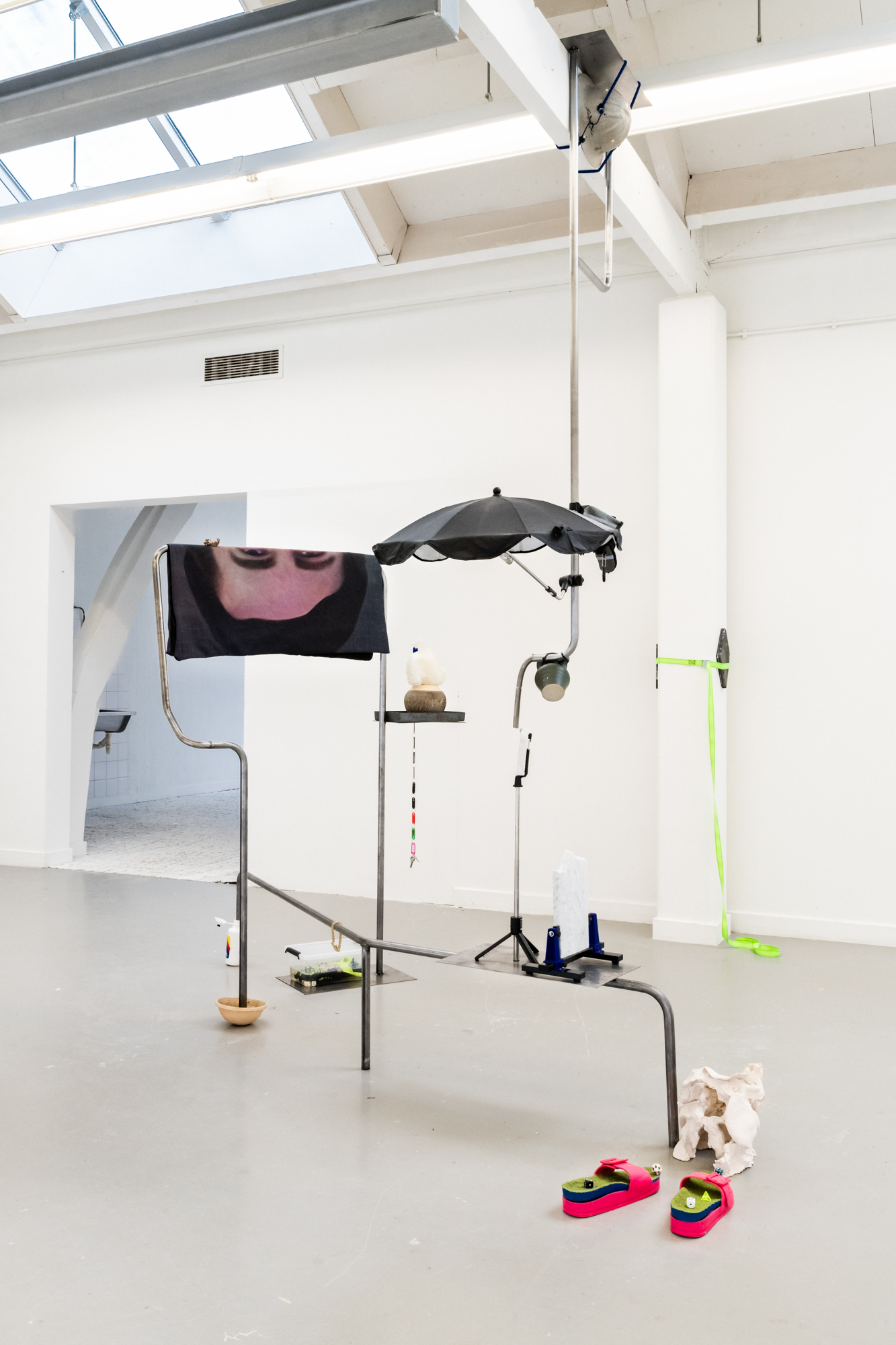
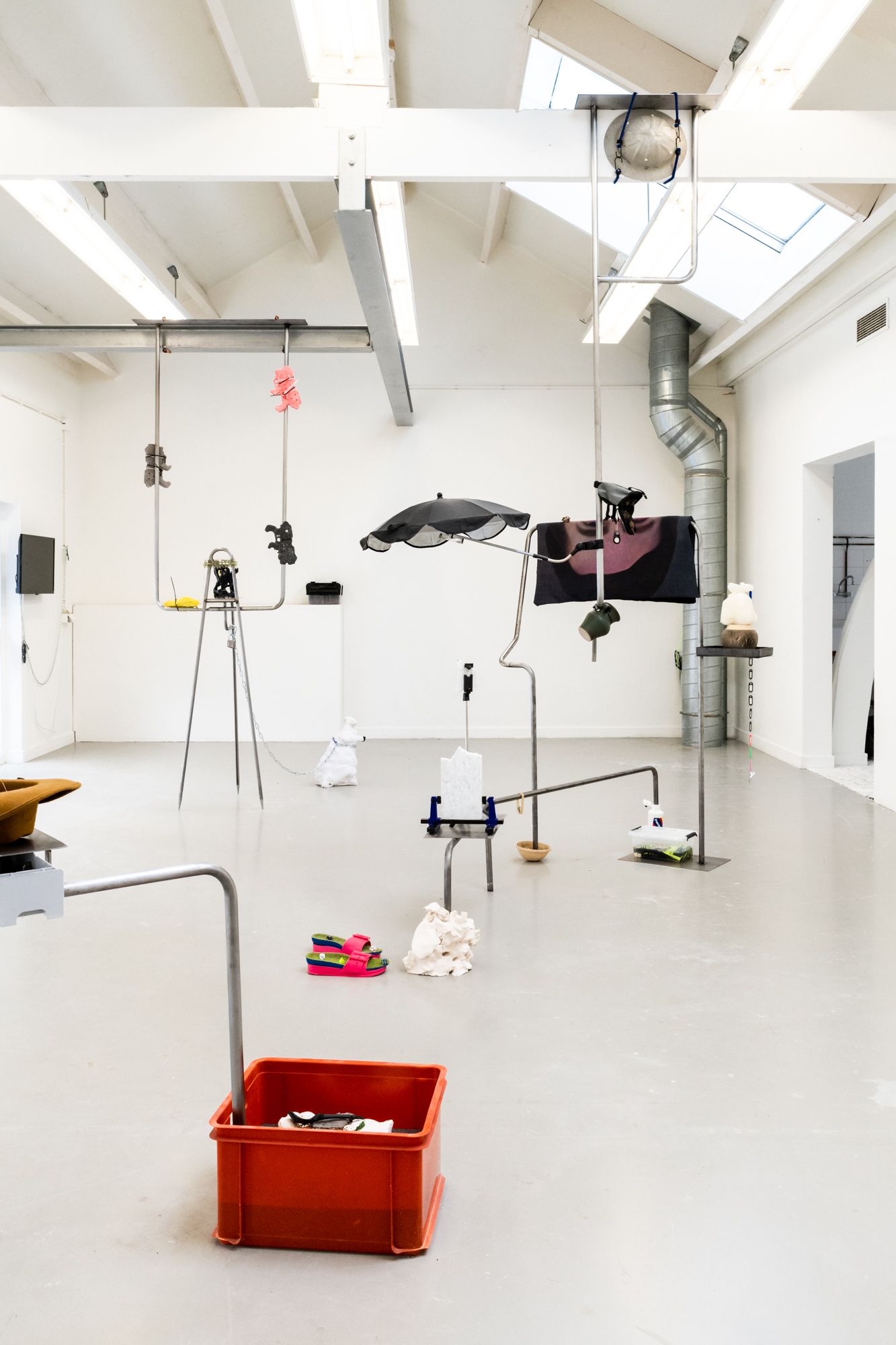
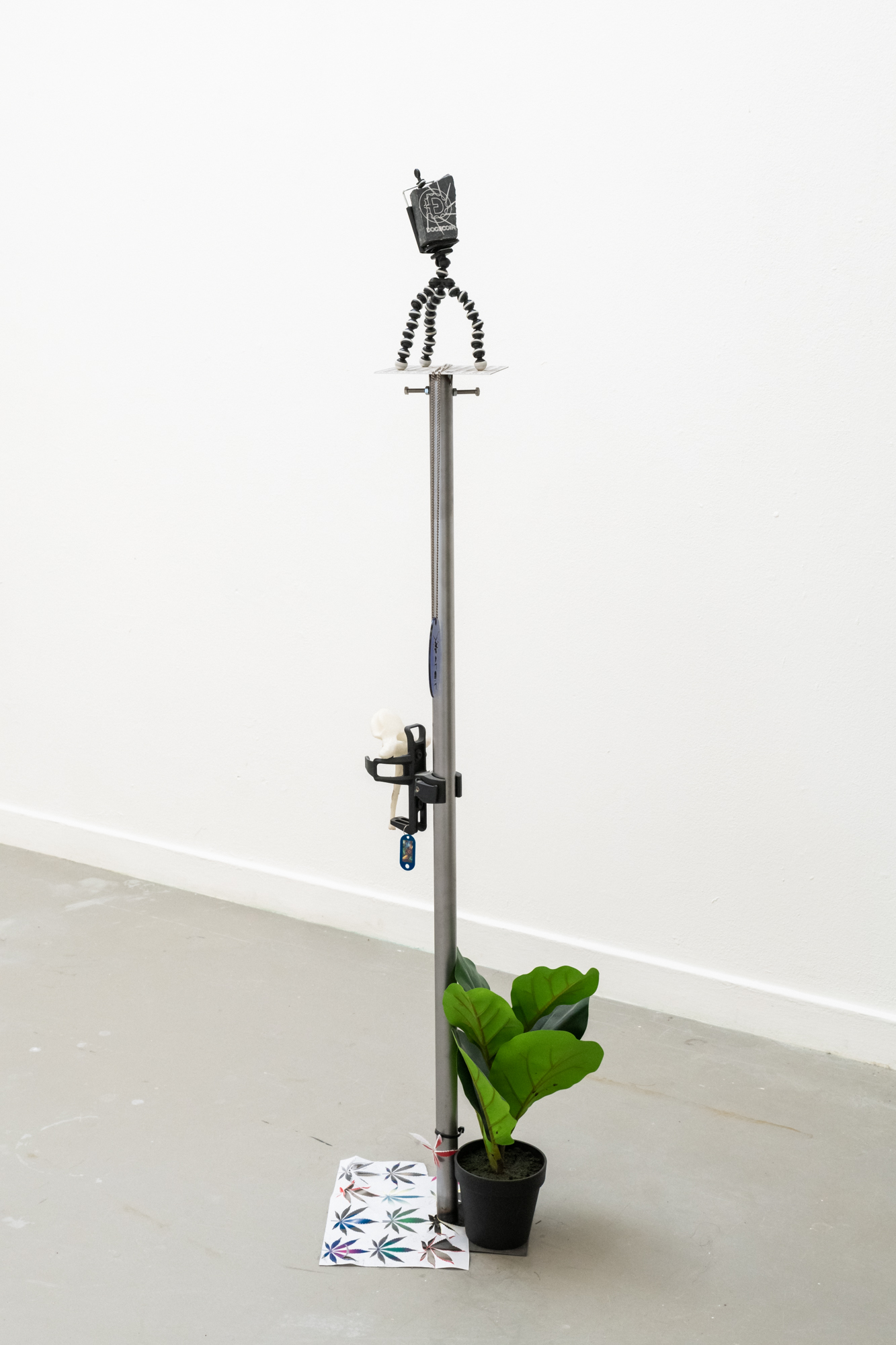
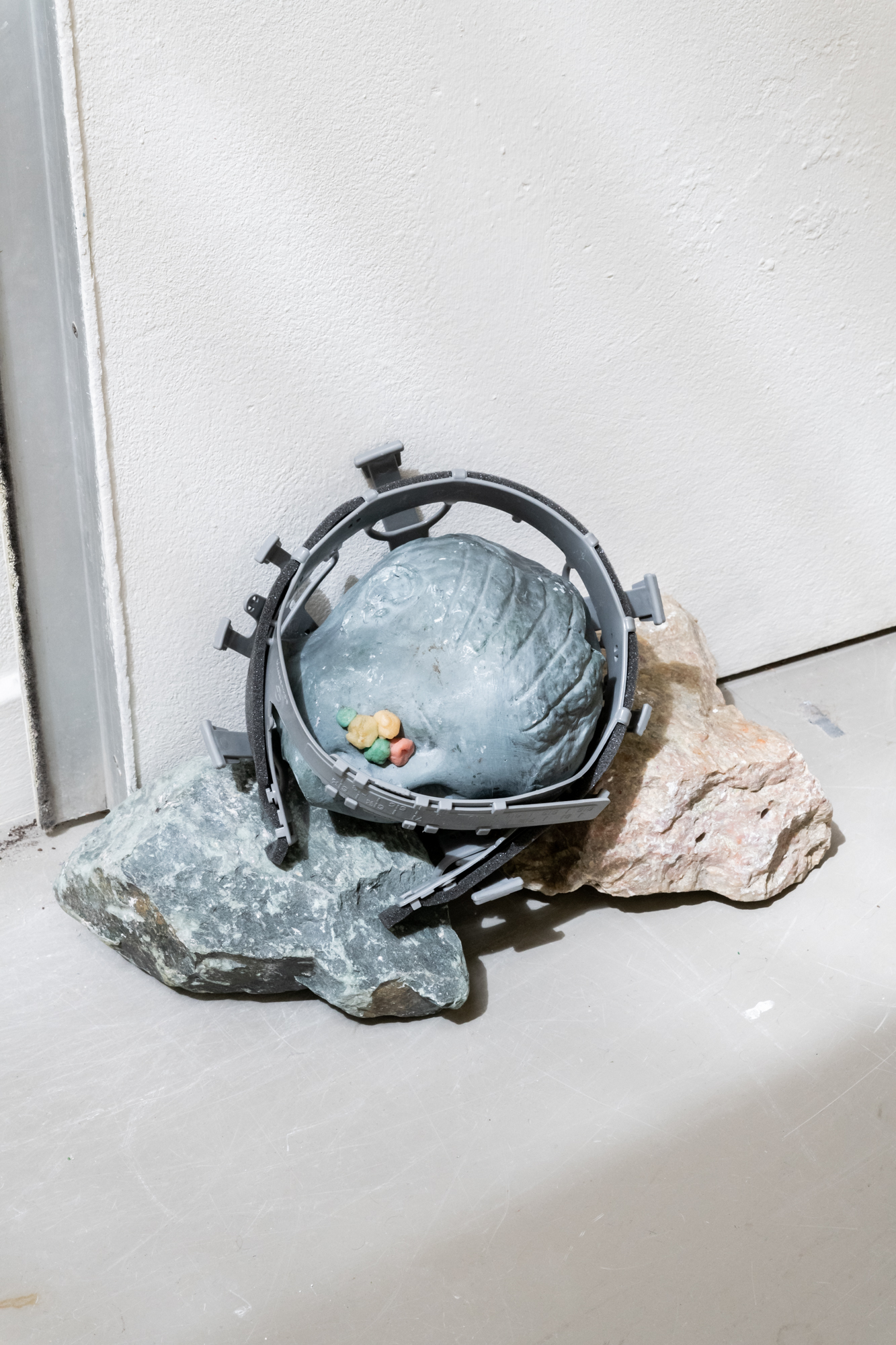

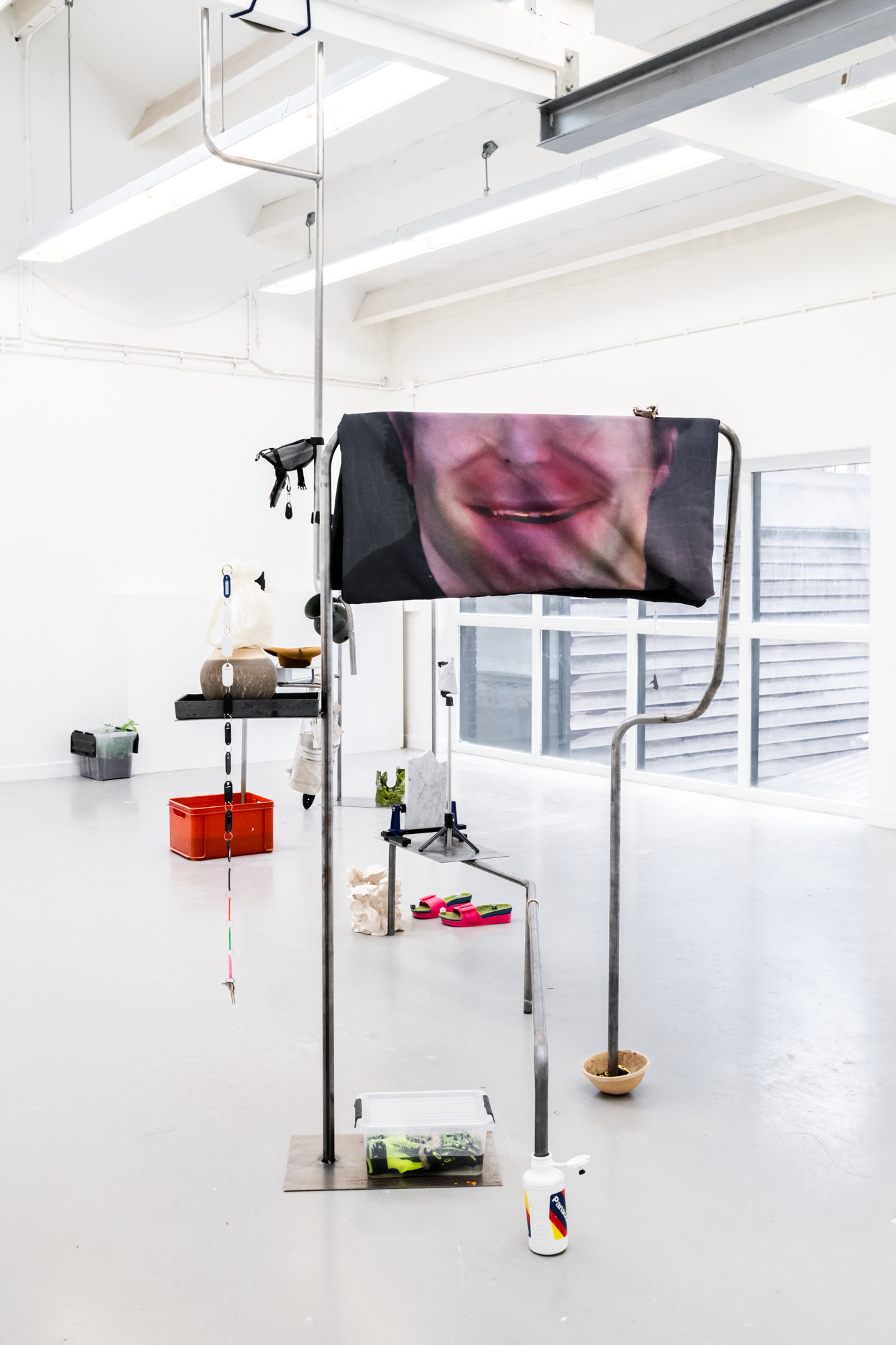
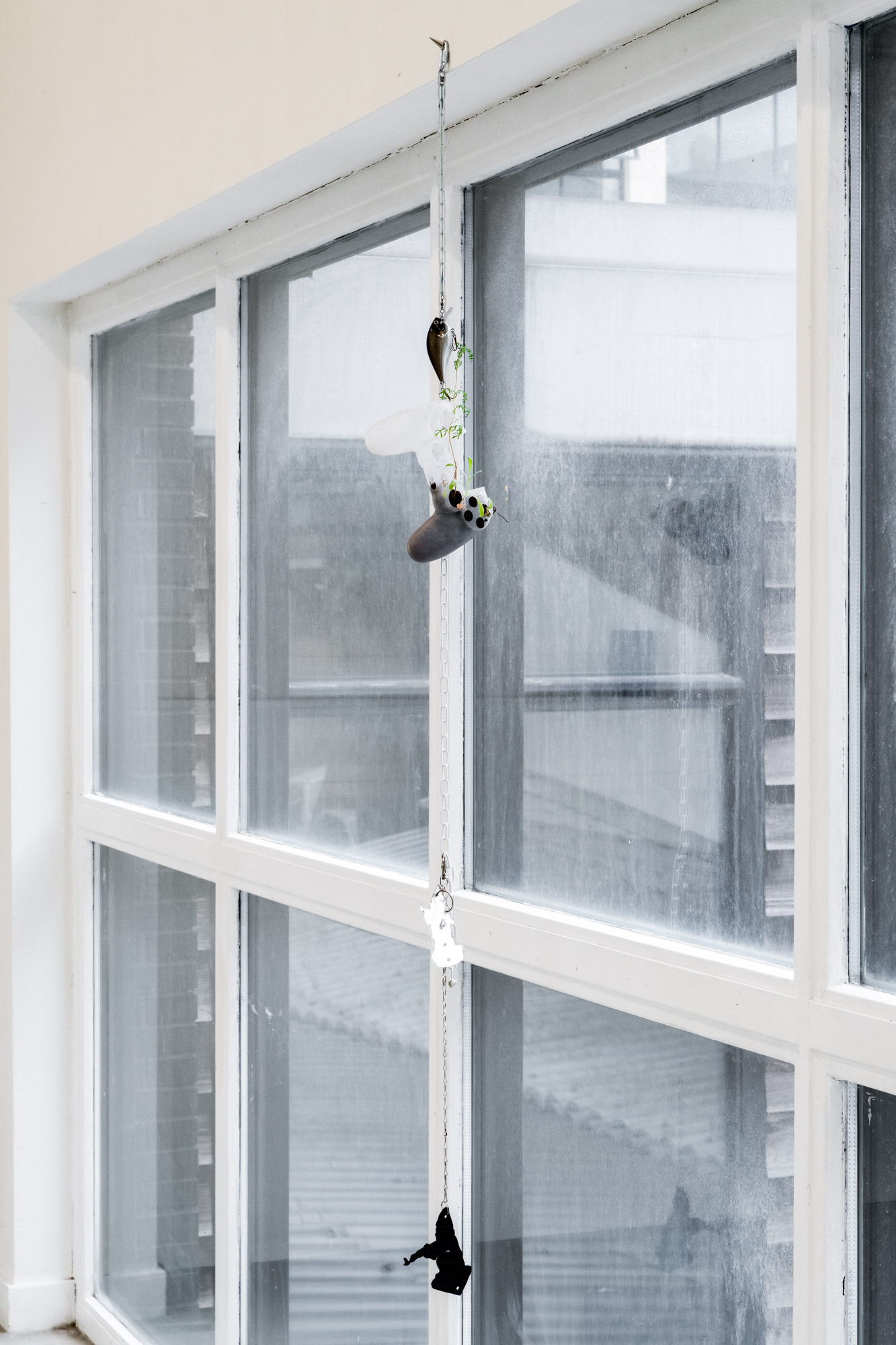
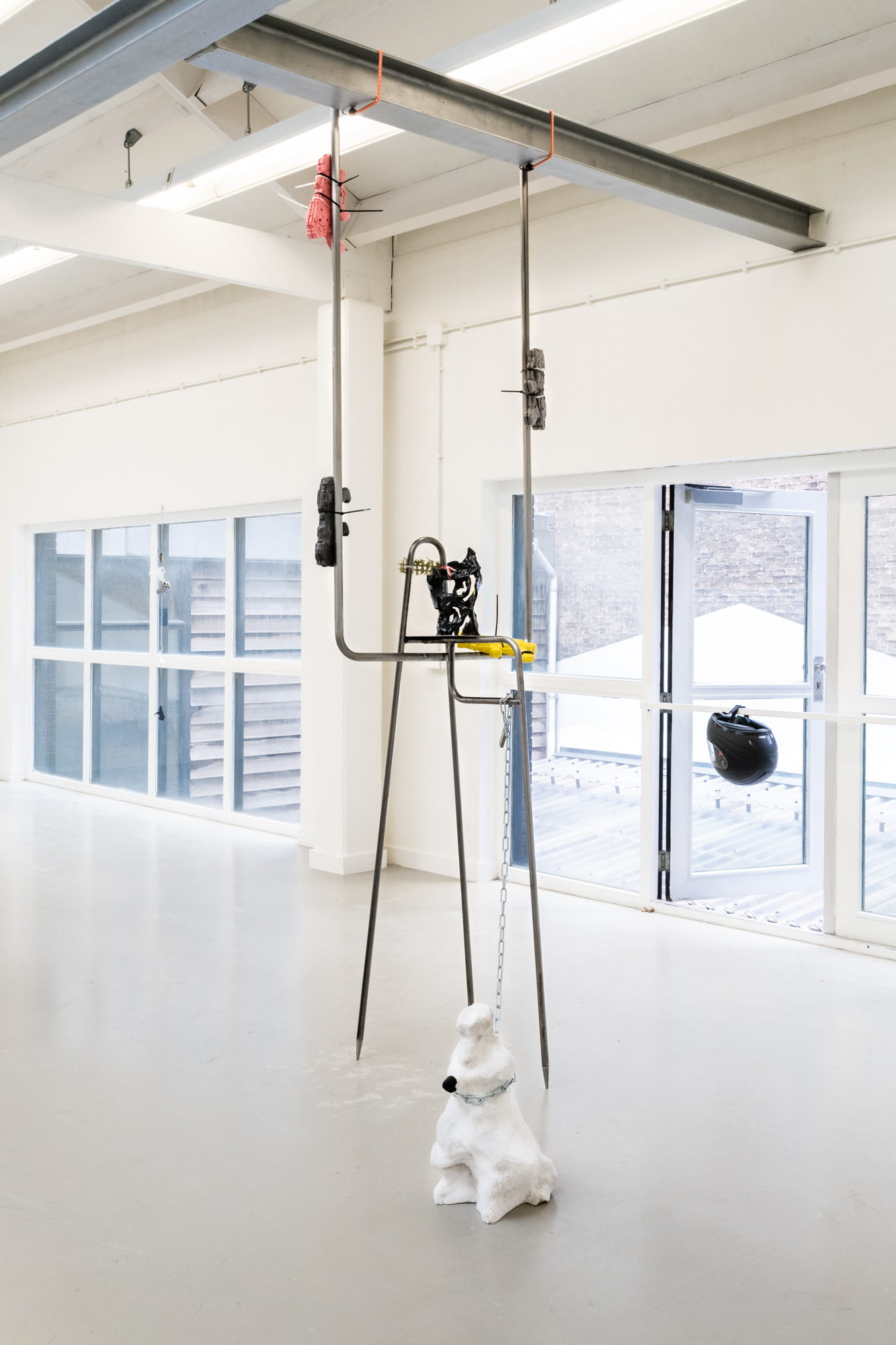
What_a_life(untoutitled)
2021
mdf, plywood, plastic, hardwood, recycled 3d printed plastic, uv- resin, metal, aluminium, felt, acrylic, carpet, plaster, hardfoam, video
Photo by Rafael Roncato
Exhibited at the Royal Academy of Arts, The Hague
“Alexander Jermilov’s installation resembles an archaeological site, inviting the viewer to wander through a maze of artefacts. The space evokes a sense of uncertainty, disorienting the viewer and blurring the boundaries between past and present. There is no clear hierarchy—objects from different epochs and materials are scattered without apparent logic, creating a chaotic map of human memory and cultural remnants. But these are not just inert relics; many of them are what Jermilov refers to as “parasite objects.”
Drawing on the idea that concepts and ideas can act as parasitic entities, Jermilov’s installation reimagines artifacts as vessels that infiltrate consciousness. Some objects are familiar, others entirely foreign, but all are subtly intrusive, replicating and adapting like memetic code. They occupy a liminal space between the physical and digital worlds, creating a sense of déjà vu as if these objects have been seen somewhere else—perhaps online, or in dreams. This overlap is made explicit in the accompanying film Unttoutitled, where the viewer traverses a computer-generated landscape populated by the same pottery pitchers and 3D-printed guns found in the physical installation. This interplay raises questions about origin: which came first, the physical objects or their digital doubles? Are these forms rooted in historical reality, or are they visual parasites, evolving to suit the contemporary mindscape?
By disorienting the viewer and denying a linear narrative, Jermilov’s post-internet installation acts as a critical reflection on the ways we construct and consume history. In a world where information itself can act as a parasite, his work suggests that ideas—like objects—are never neutral, always seeking a host.”
2021
mdf, plywood, plastic, hardwood, recycled 3d printed plastic, uv- resin, metal, aluminium, felt, acrylic, carpet, plaster, hardfoam, video
Photo by Rafael Roncato
Exhibited at the Royal Academy of Arts, The Hague
“Alexander Jermilov’s installation resembles an archaeological site, inviting the viewer to wander through a maze of artefacts. The space evokes a sense of uncertainty, disorienting the viewer and blurring the boundaries between past and present. There is no clear hierarchy—objects from different epochs and materials are scattered without apparent logic, creating a chaotic map of human memory and cultural remnants. But these are not just inert relics; many of them are what Jermilov refers to as “parasite objects.”
Drawing on the idea that concepts and ideas can act as parasitic entities, Jermilov’s installation reimagines artifacts as vessels that infiltrate consciousness. Some objects are familiar, others entirely foreign, but all are subtly intrusive, replicating and adapting like memetic code. They occupy a liminal space between the physical and digital worlds, creating a sense of déjà vu as if these objects have been seen somewhere else—perhaps online, or in dreams. This overlap is made explicit in the accompanying film Unttoutitled, where the viewer traverses a computer-generated landscape populated by the same pottery pitchers and 3D-printed guns found in the physical installation. This interplay raises questions about origin: which came first, the physical objects or their digital doubles? Are these forms rooted in historical reality, or are they visual parasites, evolving to suit the contemporary mindscape?
By disorienting the viewer and denying a linear narrative, Jermilov’s post-internet installation acts as a critical reflection on the ways we construct and consume history. In a world where information itself can act as a parasite, his work suggests that ideas—like objects—are never neutral, always seeking a host.”